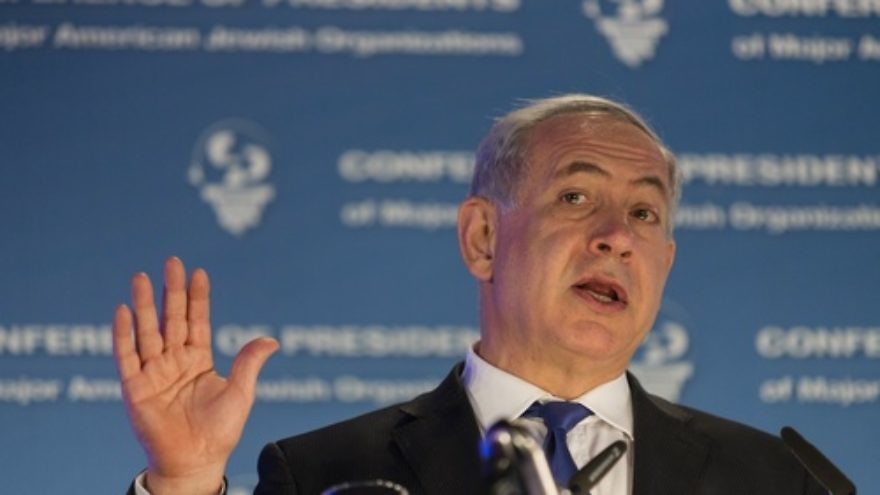Israeli Prime Minister Benjamin Netanyahu presented the cabinet with his new security doctrine for Israel on Wednesday, one that entails increasing defense spending by billions of shekels.
The “2030 security concept,” which has been in the works for two years, covers issues such as the regional threats Israel is likely to face in the coming decade, the necessary military build-up, and updated defense and security principles. It also addresses bolstering Israel’s offensive and cyber capabilities, upgrading missile defenses, continued reinforcement of the home-front and the completion of all security fences.
Israel’s longstanding defense doctrine has not been revised in years, and Netanyahu formulated the outline after lengthy consultations with top former and current defense officials.
The plan will demand an increase to defense spending in the coming decade, said Netanyahu.
According to the plan, the military will continue its streamlining process, but the budget for Israel’s intelligence agencies will increase by 0.2 percent to 0.3 percent to reach 6 percent of gross national product.
The outline stipulates that the additional funds, estimated at 3 billion to 4 billion shekels ($815 million to $1 billion) per year, will be channeled to the Shin Bet and the Mossad.
Once Israel’s GNP reaches $500 billion, the ratio of defense spending will be re-examined. GNP reached $347.8 billion in 2017.
The overall increase in defense spending over the next decade is expected to reach NIS 100 billion ($27 billion).
The budgetary implications, which are not classified, will soon be submitted for cabinet approval, the Prime Minister’s Office said on its website.
“Due to our small area, the population concentration and the numerous threats around us, Israel will always have security needs that are much greater than any other state of similar size,” Netanyahu said on Wednesday. “Today, the Israeli economy is strong enough to allow for this increase, and in any case, this increase will be enacted while maintaining a responsible budgetary framework.
“In the last 20 years, we have cultivated a free economy in order to serve national needs, especially security,” continued the prime minister. “Faced with accumulated threats, we are at a turning point. Today, we are called upon to invest more in security in order to defend our achievements and ensure continued economic growth. The combination of our security and economic strengths will increase Israel’s status as an asset in the eyes of other countries and thereby increase our diplomatic strength.”
A source in the Finance Ministry said the government “has yet to find the budgetary sources to support the financial aspects of the defense doctrine. It was agreed at the cabinet meeting that in the next meeting the Finance Ministry will present the implications of this move and its potential impact on social budgets.”


























